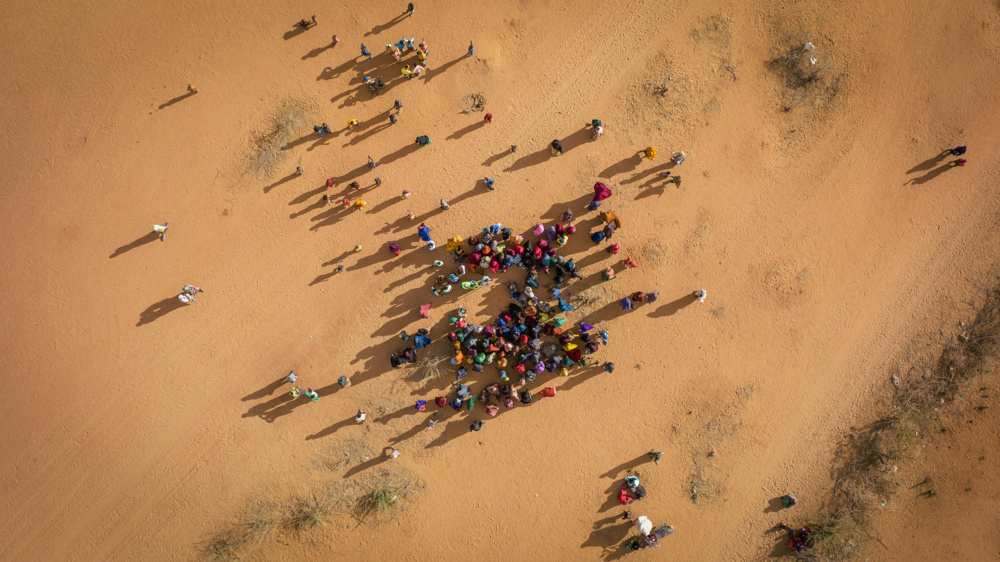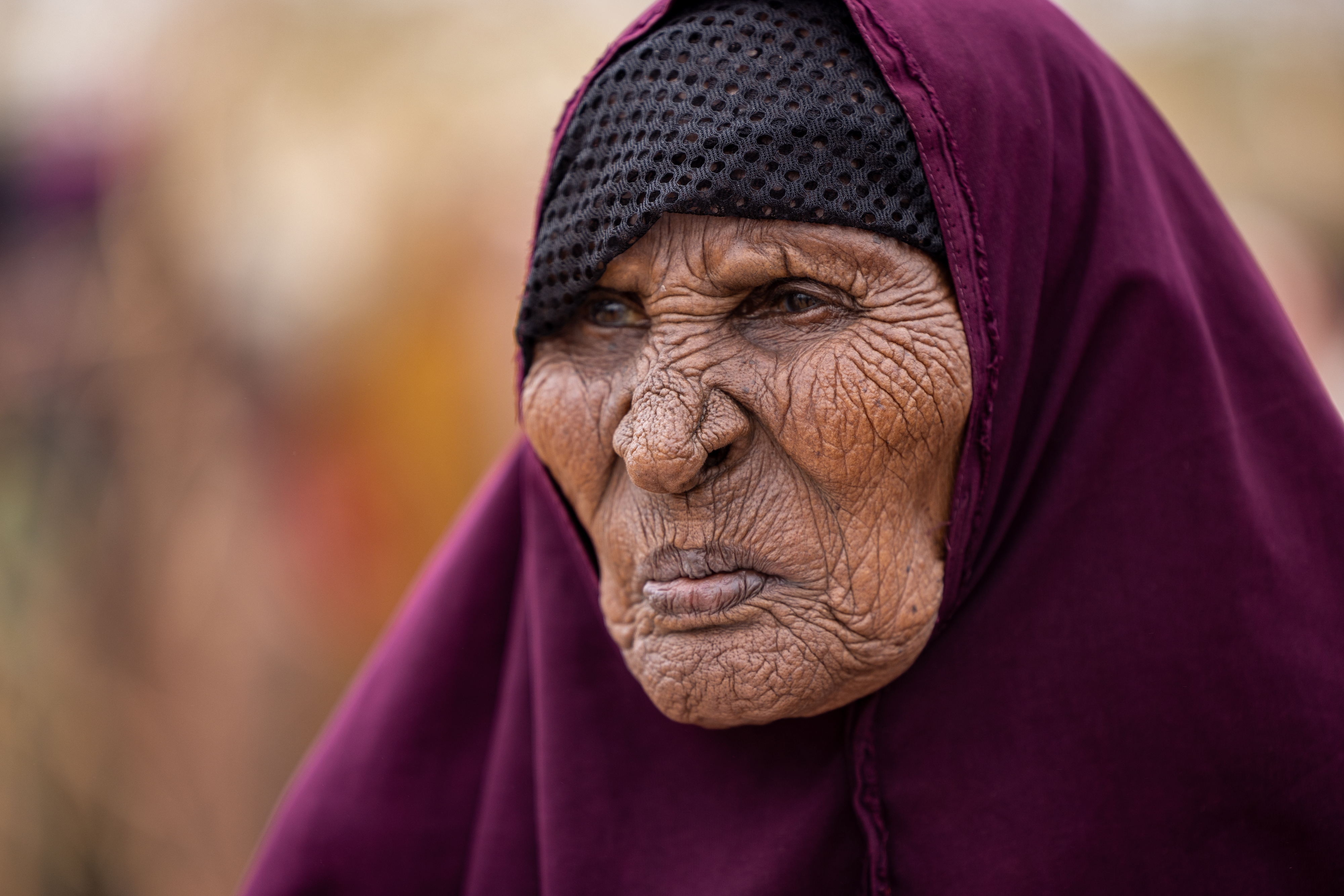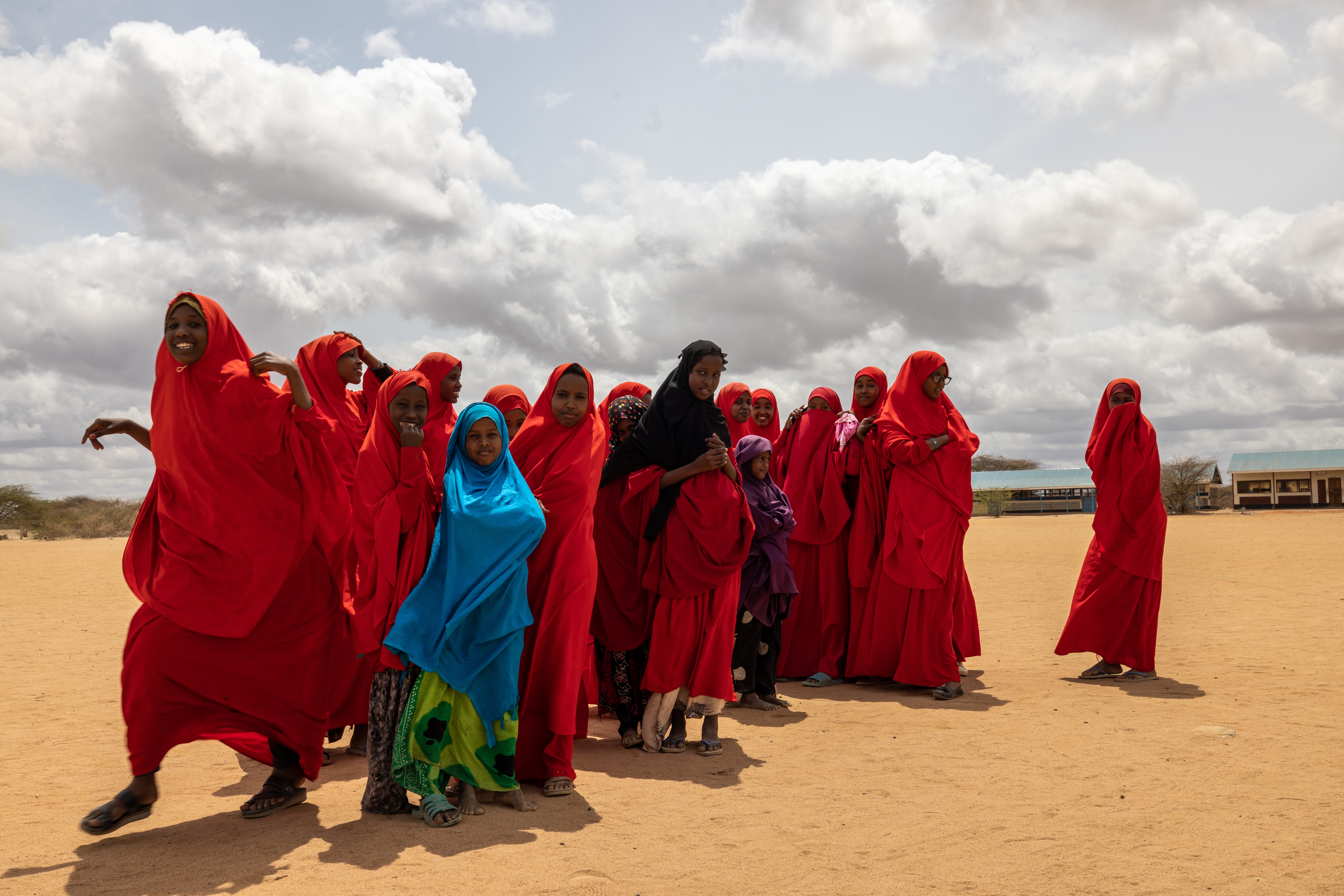
Somali climate refugees in Dadaab Refugee Camp hit by new wave of climate disasters, new EJF report reveals
As flooding in 2024 has displaced thousands of people living across the Horn of Africa, creating a new influx of climate refugees to camps such as Dadaab, the Environmental Justice Foundation (EJF) has released a new report revealing the links between global heating and generations of climate migration.
The increase of extreme weather events worsened by climate breakdown has caused a proportionate rise in migration and displacement. This has been reflected in the increase in people displaced within their own countries, rising from 23.6 million on average each year between 2013 and 2023 to 32.6 million in 2022. EJF’s new report shares the impacts of these devastating weather events alongside stories of multi-generational climate refugees in their own words, many for the first time.
The consequences of global heating have been felt keenly in the Horn of Africa, where Somali climate refugees are finding themselves on the frontlines of the climate crisis, despite contributing almost nothing to the carbon emissions fuelling climate breakdown. In 2019, Somalia had a per capita carbon footprint barely one-fifth of the EU’s. At the same time, climate modelling reveals that as a conservative estimate, events like the drought that has unfolded in the Horn of Africa are 100 times more likely due to human-indicated climate change.
The devastating consequences this has had on people’s lives is evidenced by the population living inside Dadaab Refugee Complex, which has been referred to as an “open-air prison”, EJF’s new report says. The camp was originally designed to accommodate 90,000 people, largely consisting of Somali refugees fleeing the 1991 civil war in Somalia.
However, according to the NGO’s report the population has since increased to over three and a half times that size. Between 2022 and 2023, Dadaab experienced an influx of refugees due to droughts and conflict, which caused the camp’s population to swell from 234,000 in July 2022 to 320,000 in March 2023.
In September 2022, the EJF team were the first to visit Dadaab following the largest arrival of climate refugees in decades. During this trip, Dadaab residents told EJF how drought had decimated their cattle and ruined their crops, forcing them to leave their homes and seek refuge.
Since then, the situation has worsened significantly, with over 23.5 million people suffering from acute food insecurity in the region at the height of the drought in May 2023. 8.25 million people in Somalia - almost half of the country’s population - were in need of life-saving assistance and 43,000 people died, with half the deaths among children under 5 years old.
The life stories of residents EJF met during the droughts reveal the dire situations many agro-pastoralists have found themselves in. One single mother of seven, Halima Hassan Ibrahim, who lives with disabilities in Dadaab told the NGO: “We had ten cows and 50 goats. All of the cows and goats [died] and everything else [was] destroyed. I’m a mother and a father for my kids, and I don’t have anything for them.”
The droughts ended with heavy rainfall last year, which brought with it measles and cholera outbreaks alongside impeding the delivery of relief which, in turn, caused a sharp rise in malnutrition. In 2024, the flooding which has swept across East Africa has left many of the Somali refugees who fled the heavy rains similarly beset by flooding in the Kenyan refugee camp. EJF’s new report reveals the severity of this ongoing situation, which is only set to worsen without intervention and support from the international community.
Steve Trent, CEO and Founder of the Environmental Justice Foundation, says: “The significant loss of life, forced displacement and widespread suffering caused by the climate crisis, revealed by our investigation, is a choice. Every fossil fuel CEO prioritising profit over people, every world leader failing to deliver the urgent change we need, is actively picking this course. It’s time to chart another, and for the international community to act quickly and decisively. We call for the international legal framework for the protection of refugees to incorporate and protect climate refugees. We have no time to lose when it comes to global decarbonisation, mitigating global heating and upholding the basic human rights of those most impacted by the climate crisis.”
Fardowsa Sirat Gele, reporter for Radio Gargaar, says: “The injustice is stark: those who have contributed the least to global emissions are the first to lose everything. Ignoring this urgent call will not only widen the divide between rich and poor nations but will also fuel conflict, poverty, and instability worldwide. We owe it to the most vulnerable—and to future generations—to confront this crisis with bold action and compassion. A united global response is essential—not only to mitigate future harm but to uphold justice and compassion in the face of this urgent challenge. Let’s protect our most vulnerable and ensure a world where all can thrive.”
ENDS
Notes for Editors
Further testimony from the camp residents below:
“[Our] animals are suffering. Most of the animals died and the rest have no food. They became thin and skinny and cannot be sold … People depended on animals, and when animals suffered, people suffered.” - Adam Cabdisalaad, Somali camel herder.
“The farms dried out and the cattle died off due to famine. We had 40 goats – all of them have died.” - Fahia Abdullahi, Somali climate refugee, arrived in Dadaab Refugee Complex in 2022.
“We loved our country and we wanted to stay. But suffering, drought and hardships made us flee our country.” - Hassan Noallim Adan, father of ten.
To read the full report and discover further stories from Dadaab, please visit the link here. To watch the accompanying film, please visit here.
EJF works internationally to inform policy and drive systemic, durable reforms to protect our environment and defend human rights. We investigate and expose abuses and support environmental defenders, Indigenous peoples, communities, and independent journalists on the frontlines of environmental injustice. Our campaigns aim to secure peaceful, equitable, and sustainable futures.
Our investigators, researchers, filmmakers, and campaigners work with grassroots partners and environmental defenders across the globe. Our work to secure environmental justice aims to protect our global climate, ocean, forests, wetlands, wildlife and defend the fundamental human right to a secure natural environment, recognising that all other rights are contingent on this. For more information or to speak to one of our expert analysts, please contact media@ejfoundation.org.
SIGN UP FOR OUR EMAILS AND STAY UP TO DATE WITH EJF

